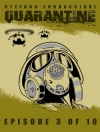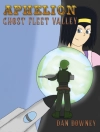The six stories in
Outside show Barry Lopez’s majestic talent as a fiction writer. Lopez writes in spare prose, but his narratives resonate with an uncanny power. With a reverence for our exterior and interior landscapes, these stories offer profound insight into the relationships between humans and animals, creativity and beauty, and ultimately, life and death.
In “Desert Notes, ” the narrator says, “All my life I have wanted to trick blood from a rock.” The story proceeds to instruct the visitor on how to experience the desert but continues like no ordinary field guide. At stake here is what is at the furthest edge of our grasp. “You will think you have hold of the idea when you have only the hold of its clothing.” Rattlesnakes, the shell of a beetle, a few twigs, silence–out of these spare elements Lopez conjures a realm that shimmers with an elusive but palpable presence.
“The Search for the Heron” and “Within Birds’ Hearing” present encounters with animals that are imbued with spiritual–and often inexplicable–exchanges. In solitary, almost visionary episodes, the narrators pass into permeable realms of nature, recalling a time when humans and animals spoke the same language. Lopez’s gift is to imagine a reality where humans can be so embedded in the natural world that the boundaries between inner and outer fall away.
Again and again, whether describing a Navajo rug possessing the essence of its maker, or a boy who can change places with his half-coyote dog (named Leaves), or a teacher whose presence brings into question the meaning of friendship, Lopez portrays elemental and sacred places. His prose transcends its simplicity to enter spaces of wonder and mystery.
As James Perrin Warren says in his compelling introduction, “Lopez’s narrators bear witness to extraordinary patterns and purposes . . . The storyteller is vital to the community and to a healthy landscape, but the vital relationship is also reciprocal. . . . We participate, along with Lopez, in the long history of storytelling. We become part of the atmosphere in which wisdom shows itself.”
Barry Moser’s eleven otherworldly, densely layered engravings accompany the text. Each provides a meditative experience that parallels Lopez’s complex sense of our relationship to nature. An afterword by Lopze closes this dramatically original collaboration.
Outside brings together Barry Lopez, best known for his National Book Award–winning
Arctic Dreams; Barry Moser, the publisher of Pennyroyal Press, whose reputation as a book artist, printmaker, designer, and artist is legendary; and the widely published James Perrin Warren, a professor of English at Washington and Lee University, to offer an abundance of riches for readers and lovers of fine books.
قائمة المحتويات
‘The Search for the Heron’ (one of six stories in
Outside
I see you on the far side of the river, standing at the edge of familiar shadows, before a terrified chorus of young alders on the bank. I do not think you know it is raining. You are oblivious to the thuck of drops rolling off the rube of your neck and the slope of your back. (Above, in the sweepy cedars, drops pool at the tips of leather needles, break away, are sheered by the breeze and, thuck, hit the hollow-boned, crimson-colored shoulders of the bird and fall swooning into the river.)
Perhaps you know it is raining. The intensity of your stare is then not oblivion, only an effort to spot between the rain splashes in the river (past your feet, so well-known, there beneath the hammered surface, like twigs in the pebbles) the movement of a trout.
I know: your way is to be inscrutable. When pressed you leave. This is no more unexpected or mysterious than that you give birth to shadows. Or silence. I watch from a distance. With respect. I think of standing beside you when you have died of your own brooding over the water–as shaken as I would be at the collapse of a cathedral, wincing deep inside as at the screech of an overloaded cart.
You carry attribution well, refusing to speak. With your warrior’s feathers downsloped at the back of your head, those white sheaves formed like a shield overlaying your breast, your gray-blue cast, the dark tail feathers–do you wear wolves’ tails about your ankles and dance in clearings in the woods when your blood is running? I wonder where you have fought warrior: Where!
You retreat beneath your cowl, spread wings, rise, drift upriver as silent as winter trees.
I follow you. You have caught me with your reticence. I will listen to whatever they say about you, what anyone who has seen you wishes to offer–and I will return to call across the river to you, to confirm or deny. If you will not speak I will have to consider making you up.
Your sigh, I am told, is like the sound of rain driven against tower bells. You smell like wild ginger. When you lift your foot from the river, water doesn’t run off it to spoil the transparent surface of the shallows. The water hesitates to offend you. You stare down with that great yellow eye, I am told, like some prehistoric rattlesnake: that dangerous, that blinding in your strike, that hate-ridden. But (someone else has insisted) you really do smell like wild ginger, and snakes smell like cucumbers. A false lead.
Cottonwoods along the river, stained with your white excrement, are young enough to volunteer complaint about you. The have grown so fast and so high with such little effort that they can understand neither failure nor triumph. So they will say anything they think might be to their advantage. I, after a somewhat more difficult life, am aware that they will lie, and that lies serve in their way.
(It was one of these who told me you were without mercy and snakelike.) One of them said something about your fishy breath–vulgar talk, I know. But I heard it out. It is, after all, in their branches where you have dreamed at night, as immobile as a piece of lumber left in their limbs, and considered your interior life. This idea attracts me. I know: this is not something to inquire into with impunity, but I did not start out on this to please you. And in spite of my impatience I am respectful.
One dream alone reveals your grief. The trees said you dreamed most often of the wind, with the wind rippling your feathers; and that children were born of this, that they are the movement of water in all the rivers. You wade, it is suggested, among your children, staring hard, pecking in that lightning way your life from the water that is your child; and sleeping in trees that do not hold you sacred.
I know why you appear so fierce and self-contained. I can imagine fear in the form of a frog in your beak screaming and you, undisturbed, cool. When you finally speak up, feigning ignorance with me won’t do; enigmatic locutions, distracting stories of the origin of the universe–these will not do. I expect the wisdom of the desert out of you.
The cottonwoods also told me of a dance, that you dreamed of a dance: more than a hundred great blue herons riveted by the light of dawn, standing with wind-ruffled feathers on broad slabs of speckled gray granite, river-washed bedrock, in that sharp, etching backlight, their sleek bills glinting, begin to lift their feet from the thin sheet of water and to put them back down. The sound of the rhythmic splash, the delicate kersplash of hundreds of feet, came up in the sound of the river and so at first was lost; but the shards of water, caught, blinding in the cutting light (now the voices, rising, a keening) began to form a mist in which appeared rainbows against the white soft breasts; and where drops of water dolloped like beads of mercury on the blue-gray feathers, small rainbows of light here; and in the eyes (as the voices, louder, gathering on one, high, trembling note) rainbows—the birds cradled in light shattered in rainbows everywhere, and with your great blue wings fanning that brilliant mist, open, utterly vulnerable and stunning, you urged them to begin to revolve in the light, stretching their wings, and you lay back your head and closed the steely eyes and from deep within your belly came the roar of a cataract, like the howling of wolves—that long moment of your mournful voice. The birds quieted, their voices quieted. The water quieted, it quieted, until there was only your quivering voice, the sound of the birth of rivers, tapering finally to silence, to the sound of dawn, the birds standing there full of grace. One or two feathers floating on the water.
I understand it is insensitive to inquire further, but you see how your silence becomes even more haunting.
I believe we will dance together someday. Before then will I have to have been a trout, bear scars from your stabbing misses and so have some deeper knowledge? Then will we dance? I cannot believe it is so far between knowing what must be done and doing it.
The cottonwoods said there was more, but I put up my hand, tired, on edge at the sound of my own voice asking questions. I went into the trees, wishing to cry, I thought, for what had been lost, feeling how little I knew, how anxious I was, how young.
The big maples, where you have slept since then–I resolved to ask them about your dreams. No; they refused. I climbed up in their limbs, imploring. They were silent. I was angered and made a fool of myself beating on the trunks with my fists screaming, “Tell me about the bird! It is only a bird!”
Learning your dreams unnerved me. What unholy trespass I had made.
When I regained my composure I apologized, touching the maple trunks gently with my fingers. As I departed a wind moved the leaves of a low branch against my face and I was embarrassed, for I was waiting for some sign of understanding. I walked on, alert now to the wind showing here and there in the grass. The wind suddenly spoke of you as of a father. The thoughts were incomplete, hinting at something incomprehensible, ungraspable, but I learned this: you are able to stand against you. You arrange yourself so that you cast no shadow and you stop breathing for half an hour. The only sound is the faint movement of your blood. You are quiet enough to hear fish swimming toward you.
When asked, discretely, whether long ago you might have fought someone, some enemy whose name I might recognize, the wind was suddenly no longer there. From such strength as is in you I suspect an enemy. I have inquired of the stones at the bottom of the river; I have inquired of your other enemy, the pine marten; I have waded silently with your relatives, the bitterns, alert for any remarks. All to no avail.
I have been crippled by my age, by what I have known. As well as by my youth, by what I have yet to learn, in all these inquiries. It has taken me years, which might have been spent (by someone else) seeking something greater, in some other place. I have sought only you. Enough. I wish to know you, and you will not speak.
It is not easy to tell the rest, but I know you have heard it from others. Now I wish you to hear it from me. I took bits of bone from fish you had eaten and pierced my fingers, letting the blood trail away in the current. I slept on what feathers of yours I could find. From a tree felled in a storm I took your nest, climbed with it to a clearing above the river where there was a good view, as much sky as I could comprehend. Bear grass, pentstemon, blue gilia, wild strawberries, Indian paintbrush growing there. Each night for four nights I made a small fire with sticks from the old nest and looked out toward the edge of the shadows it threw. On the last night I had a great dream. You were standing on a desert plain. You were painted blue and you wore a necklace of white salmon vertebrae. Your eyes huge, red. Before you on the dry, gray earth a snake coiled, slowly weaving the air with his head. You spoke about the beginning of the world, that everything that was afraid would live poorly.
The snake said coldly, weaving, yes, there would be fear, that fear would make everything strong and lashed out, opening a wound in your shoulder. As fast, you pinned his head to the ground and said–the calmness in your voice–fear might come, and it could make people strong, but it would be worth nothing without compassion. And you released the snake.
I awoke sprawled in bear grass. It was darker than I could ever remember a night being. I felt the spot on the planet where I lay, turned away from the sun. My legs ached. I knew how old I was lying there on top of the mountain, a fist of cold air against my breast as some animal, a mouse perhaps, moved suddenly under my back.
An unpronounceable forgiveness swept over me. I knew how much had to be given away, how little could ever be asked. The sound of geese overhead in the darkness just then, and all that it meant, was enough.
I leap into the jade color of the winter river: I fight the current to reach the rocks, climb up on them and listen for the sound of your voice. I stand dripping, shivering in my white nakedness, in the thin dawn light. Waiting. Silent. You begin to appear at a downriver bend.
عن المؤلف
James Perrin Warren is the S. Blount Mason Jr. Professor of English at Washington and Lee University in Lexington, Virginia. Warren specializes in nineteenth-century literature and culture, and literature of the environment. His books include John Burroughs and the Place of Nature, Culture of Eloquence: Oratory and Reform in Antebellum America, and Walt Whitman’s Language Experiment.












